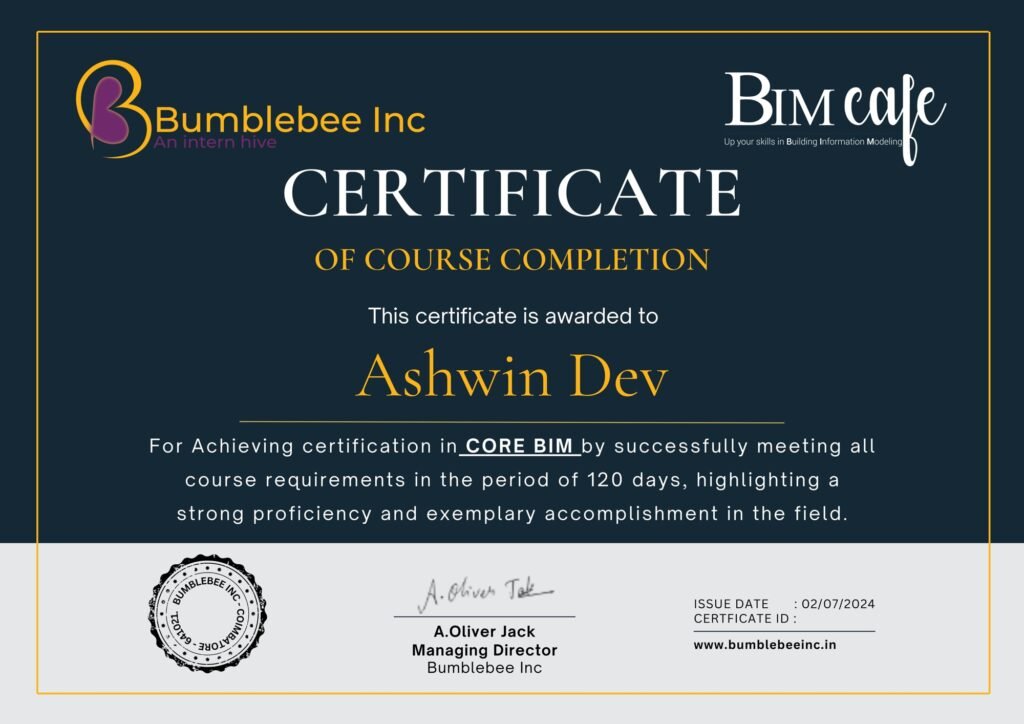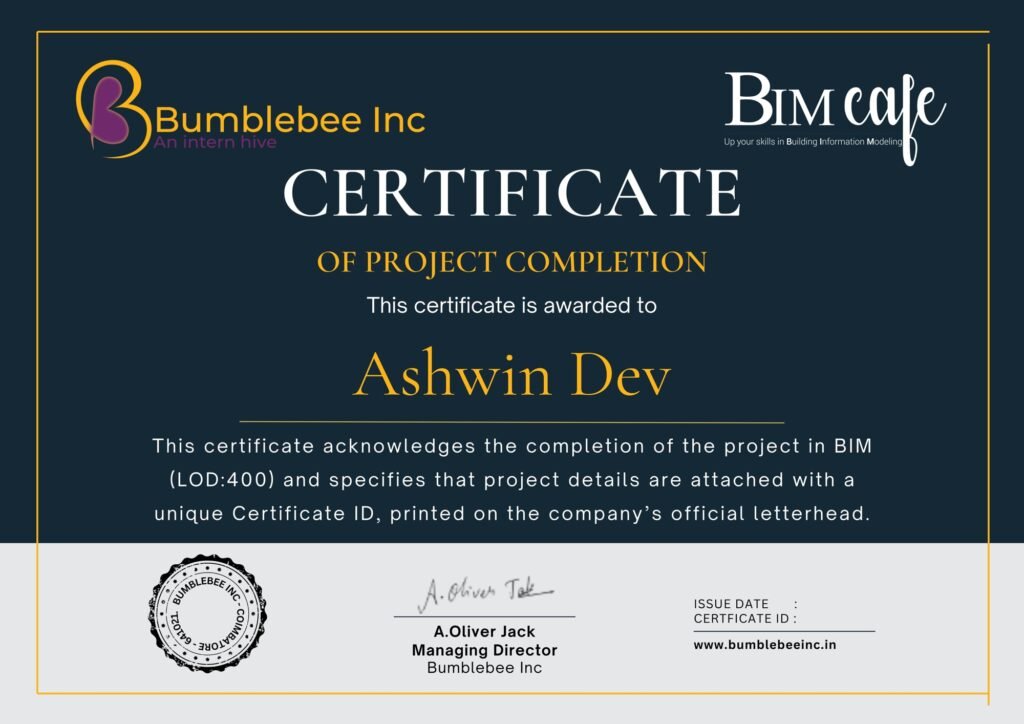CORE BIM Course for Electrical Engineering
June 7, 2024 2025-07-19 8:00CORE BIM Course for Electrical Engineering
CORE BIM COURSE
FOR ARCHITECTURE
BIM (Building Information Modeling) is integral to architecture, spanning design, construction, and building management. It fosters collaboration among architects, engineers, and contractors, facilitating real-time coordination and communication for cohesive design solutions. Architects leverage detailed 3D models and simulation tools provided by BIM to visualize and communicate design concepts effectively. BIM enables architects to create intelligent building elements, supporting iterative design exploration and rapid prototyping for innovative solutions. Moreover, BIM supports the entire building lifecycle, aiding decision-making from design to decommissioning.
Architects utilize BIM data to inform decisions throughout each stage, including renovation and refurbishment. Serving as a central repository, BIM streamlines project management tasks such as scheduling and resource allocation, enhancing collaboration among team members. Overall, BIM empowers architects to create integrated, efficient, and sustainable buildings while improving project efficiency and collaboration.
.
Course Details
COURSE OVERVIEW
Introduction to CORE BIM & BIM LOD’s (Level Of Development)
- Introduction to BIM: Understanding the concept, principles, and objectives of BIM. This includes its evolution, benefits, and significance in the construction industry.
- BIM Modeling Techniques: Parametric, families, components for detailed architectural elements.
- Collaborative BIM: Stakeholders, coordination, clash detection, version control topics covered.
- BIM Data Management: Organize, name files, adhere to IFC/COBie standards.
- BIM Data Management: Organize files, standardize names, adhere to IFC/COBie.
- BIM Visualization: Realistic renderings, animations, VR to convey design intent.
- BIM: Quantity takeoff, cost estimation, extracting quantities, accurate project estimates.
- BIM Sustainability Analysis: Energy, daylighting, life cycle assessment for green designs.
- BIM Implementation: Plans, standards, challenges, for organizational adoption and efficiency.
- Legal and ethical aspects: IP rights, liability, confidentiality in BIM.
- BIM case studies: Practical application, hands-on projects for reinforcing learning.
- BIM trends: Cloud collaboration, AI, automation shaping future construction practices.
- BIM Data Management: Organize, name files, adhere to IFC/COBie standards.
- 3 International real world project training. (LOD 200 , LOD 300, LOD 350)
- Assured assistance in landing positions at global BIM firms.
LEARNING OBJECTIVES
At Bumblebee, we recognize the pivotal role of innovation and effective communication within the AEC industry. Our CORE BIM Course is meticulously crafted to prioritize hands-on learning, teamwork, and leadership development. Participants not only acquire theoretical insights but also actively engage in practical exercises and real-world projects. This immersive approach ensures graduates are not just knowledgeable but also adept at applying their skills in diverse scenarios. Equipped with confidence and expertise, our graduates emerge as proficient BIM specialists poised to drive meaningful progress in their respective fields. Our program transcends traditional education by fostering holistic growth, preparing participants to navigate the intricacies of the AEC industry with finesse. Through collaborative learning and a focus on professional advancement, our participants evolve into versatile and impactful professionals, ready to shape the future of the building sector..
PREREQUISITES
To enroll in the Core BIM course, participants should possess a fundamental grasp of construction processes and principles. Familiarity with design software such as AutoCAD or Revit is highly recommended. Learners are expected to have foundational knowledge of architectural, engineering, or construction concepts. While prior experience with BIM can be advantageous, it is not mandatory. Proficiency in utilizing computer systems and a willingness to engage in collaborative learning environments are essential. Basic project management skills will also serve as a valuable asset for participants throughout the course.
TEACHING METHODOLOGY
The CORE BIM course integrates theory with practical application, guided by experienced instructors. Participants engage in interactive lectures, hands-on workshops, and collaborative projects, emphasizing real-world scenarios to apply Building Information Modeling techniques effectively. Advanced software tools enhance learning and skill development. Rigorous assessments, peer reviews, and constructive feedback ensure deep understanding and continuous improvement. This comprehensive approach cultivates technical expertise and innovative thinking, preparing students to excel in the dynamic field of BIM.
COURSE SPECIFICATIONS
From Class Room To Corporate
Where Our Students Shine

Megha C S - B.Tech in Civil Engineering

Calvin Ramesh - B.Arch

Abhanv Anoop - B.Tech in Mechanical Engineering

Gazal Joggy - MBA in Construction Management

Aswani E M - B.Tech in Electrical and Electronics Engineering

Aswini P - B.Tech in Civil Engineering

Midhun Menon - B.Tech in Civil Engineering

Nidheesh MK - Diploma in Civil Engineering

Stefy Bency Alexander - B.Arch

Jyothi Lakshmi C S - B.Tech in Civil Engineering
Where Learning Meets Opportunity
UNLOCK YOUR CERTIFICATES











